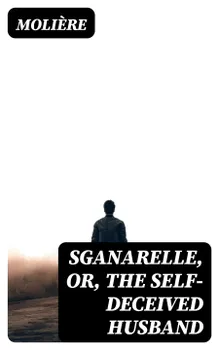In "Sganarelle, or, the Self-Deceived Husband," Molière masterfully weaves a comedic tapestry that explores themes of deception, jealousy, and the complexities of marriage. This one-act play employs sharp wit and satire typical of Molière's literary style, characterized by its clever dialogue and incisive social commentary. The narrative revolves around Sganarelle, a cuckolded husband trapped in his own delusions, providing a poignant reflection of 17th-century French society's views on masculinity and fidelity. Through this humor-laden examination of human folly, Molière critiques both social pretensions and the absurdity of self-deception, encapsulating the era's distinctive blend of Enlightenment thinking and theatrical innovation. Molière, born Jean-Baptiste Poquelin, was profoundly influenced by the theatrical traditions of his time and personal experiences within the socio-political landscape of France. His keen observations of human behavior, particularly in the context of marital dynamics and societal roles, informed his writing. Supported by a life immersed in the theater, Molière aimed to expose moral failings while entertaining his audience, thus fostering laughter that also provokes reflection. For readers seeking a thought-provoking yet humorous exploration of marital relations and self-delusion, "Sganarelle, or, the Self-Deceived Husband" is a perfect entry point into Molière's oeuvre. This play not only entertains but serves as a timeless reminder of the follies inherent in human relationships, making it essential reading for enthusiasts of classic literature and those interested in the intricacies of love and deception.

El enfermo imaginario "Le malade imaginaire"
Molière
audiobook
10 œuvres du bac français
Molière, Abbé Prévost, Arthur Rimbaud
book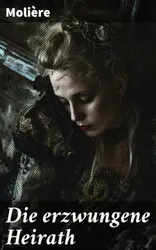
Die erzwungene Heirath : Eine humorvolle Kritik an arrangierten Ehen und Gesellschaftsnormen des 17. Jahrhunderts
Molière
book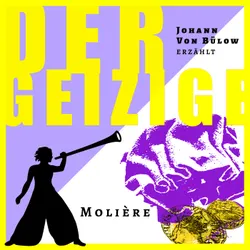
Der Geizige - Erzählbuch, Band 10 (Ungekürzt)
Meike Rötzer, Molière
audiobook
Molière: Oeuvres complètes
Molière
book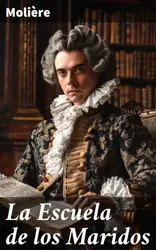
La Escuela de los Maridos : Reflejos satíricos de la sociedad francesa del siglo XVII a través del matrimonio y el poder
Molière
book
El Ricachón en la Corte : Una mirada humorística a la vanidad y la ambición: El Ricachón en la Corte
Molière
book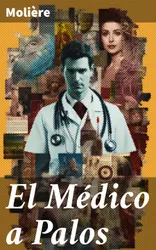
El Médico a Palos : Entre risas y críticas, Molière revela la naturaleza humana
Molière
book
French Literature Classics - Ultimate Collection: 90+ Novels, Stories, Poems, Plays & Philosophy : Exploring the Depths of French Literary Classics
Stendhal, Jules Verne, Gustave Flaubert, Émile Zola, Victor Hugo, Guy de Maupassant, Jean-Jacques Rousseau, François Rabelais, George Sand, Marcel Proust, Gaston Leroux, Charles Baudelaire, Molière, Pierre Corneille, Jean Racine, Voltaire, Pierre Choderlos de Laclos, Alexandre Dumas pere, Alexandre Dumas fils
book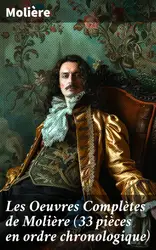
Les Oeuvres Complètes de Molière (33 pièces en ordre chronologique) : Exploration de l'humanité à travers la satire théâtrale
Molière
book
The Greatest Works of French Literature : 90+ Novels, Short Stories, Poems, Plays, Philosophical Essays…
Stendhal, Jules Verne, Gustave Flaubert, Émile Zola, Victor Hugo, Guy de Maupassant, Jean-Jacques Rousseau, François Rabelais, George Sand, Marcel Proust, Gaston Leroux, Charles Baudelaire, Molière, Pierre Corneille, Jean Racine, Voltaire, Pierre Choderlos de Laclos, Alexandre Dumas pere, Alexandre Dumas fils
book
Harvard Classics - Complete Collection of the Greatest Works of World Literature
Johann Wolfgang von Goethe, Gotthold Ephraim Lessing, Thomas Carlyle, Plato, Charles Darwin, Dante Alighieri, Euripides, Percy Bysshe Shelley, Charles Lamb, Samuel Johnson, John Stuart Mill, David Hume, Joseph Addison, Leigh Hunt, Epictetus, Thomas De Quincey, Samuel Taylor Coleridge, Jonathan Swift, Christopher Marlowe, Jacob Grimm, Wilhelm Grimm, William Hazlitt, Marcus Tullius Cicero, Daniel Defoe, Aesop, Richard Henry Dana, John Dryden, Pedro Calderón de la Barca, John Ruskin, Robert Burns, David Garrick, Ralph Waldo Emerson, Izaak Walton, John Bunyan, Homer, Edmund Burke, Plutarch, Molière, Aeschylus, Sophocles, William Makepeace Thackeray, Benjamin Franklin, Pierre Corneille, Jean Racine, Robert Browning, Oliver Goldsmith, John Milton, Aristophanes, Virgil, Richard Brinsley Sheridan, William Penn, Philip Sidney, Francis Bacon, Adam Smith, Alessandro Manzoni, Abraham Cowley, Ben Jonson, John Woolman, Sydney Smith, Marcus Aurelius, Hans Christian Andersen, George Gordon Byron, Thomas à Kempis, Richard Steele, Thomas Browne, Thomas Babington Macaulay, Miguel de Cervantes, Friedrich von Schiller, Pliny the Younger, Saint Augustine
book
